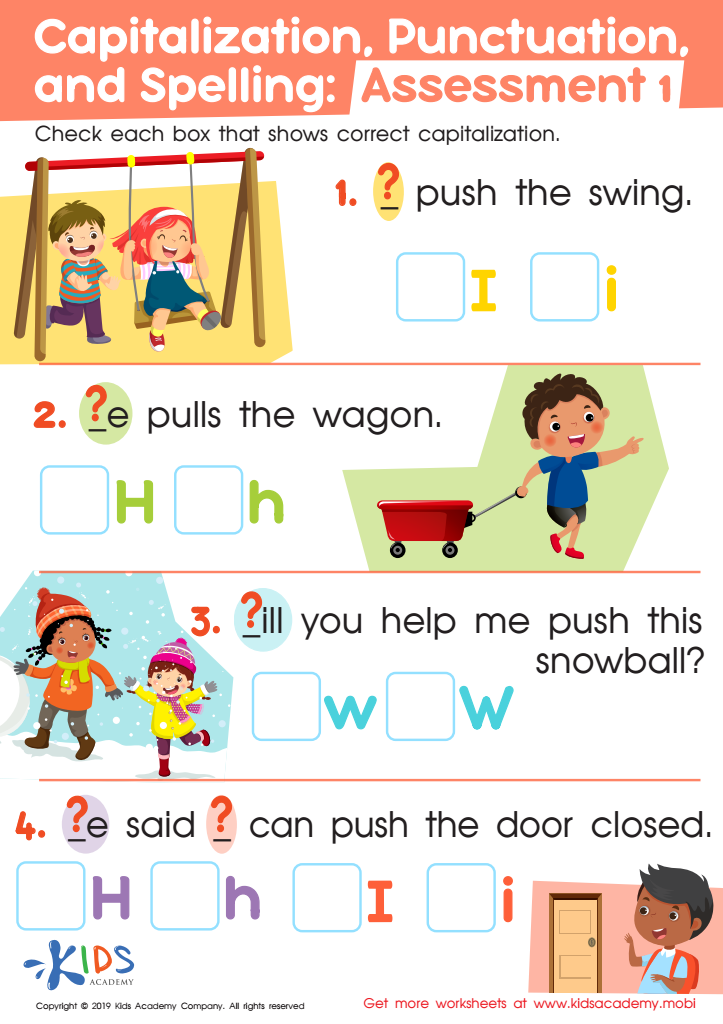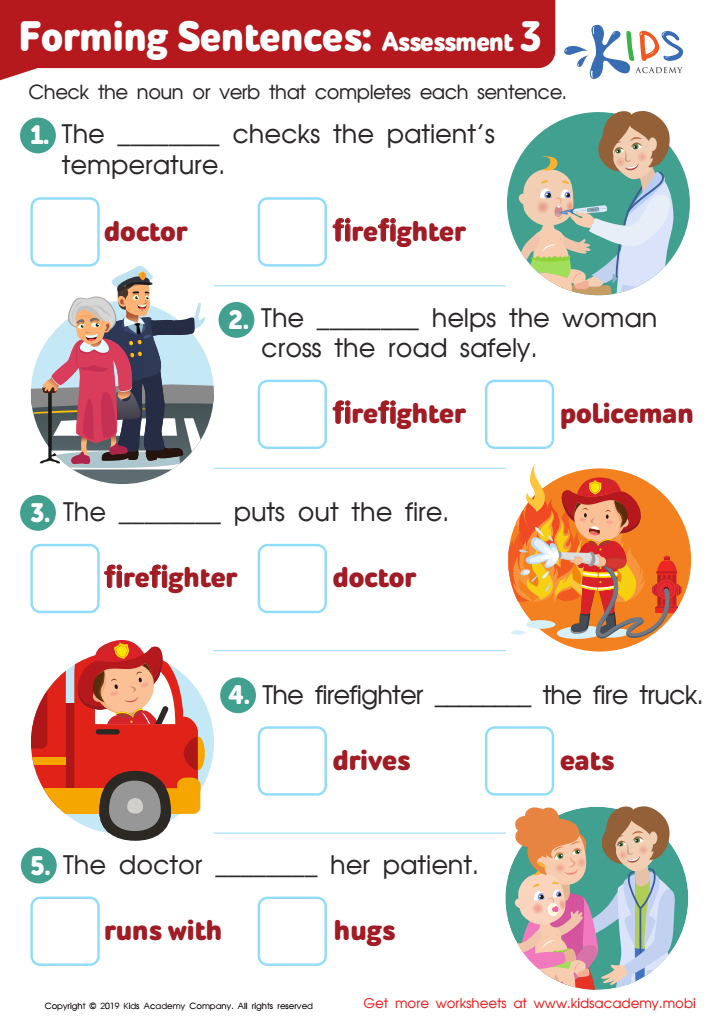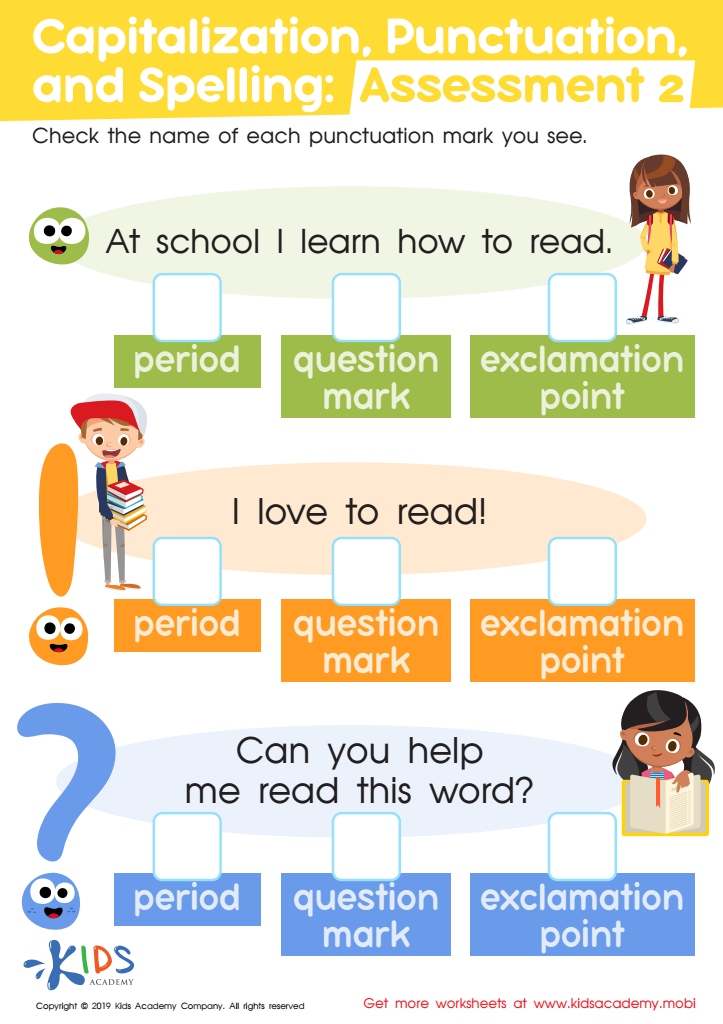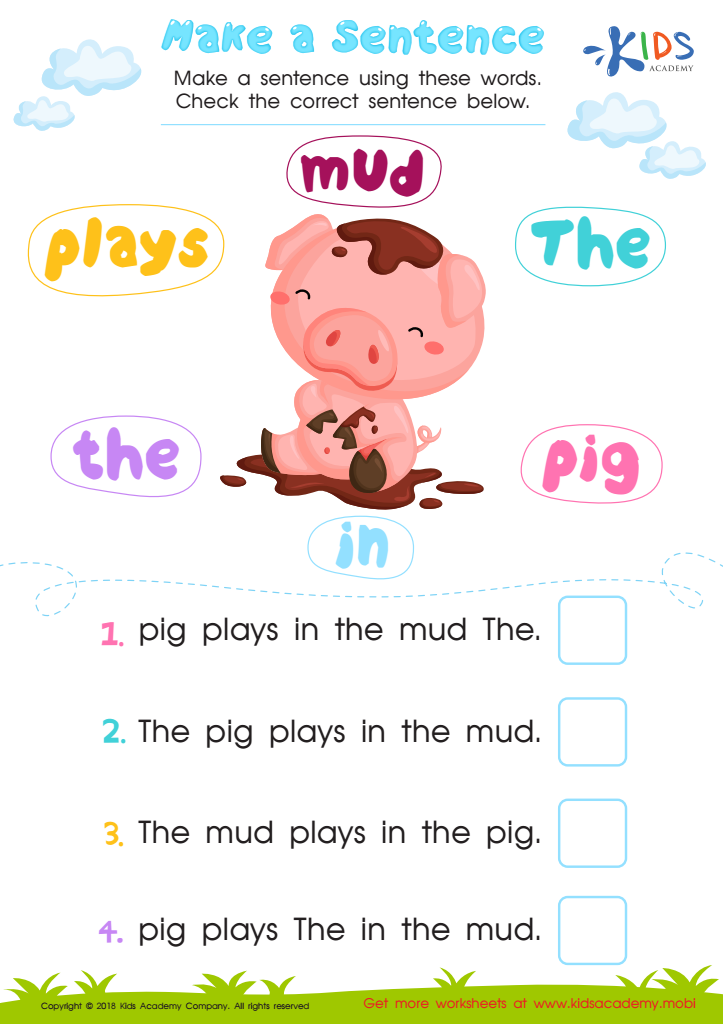Easy Writing Worksheets Activities With Answers for Ages 3-6
4 filtered results
-
From - To
Welcome to our collection of Easy Writing Worksheets for children aged 3-6! Designed to spark creativity while building essential writing skills, these engaging activities focus on letter formation, simple word construction, and sentence building. Each worksheet is tailored to meet the developmental needs of young learners, making writing fun and accessible. Encouraging practice at an early age helps boost confidence and literacy skills. With provided answer keys, both parents and educators can easily guide children through their writing journey. Explore our easy-to-use worksheets and watch your child's writing abilities flourish, setting the foundation for a successful educational experience!


Capitalization. Punctuation. Spelling: Assessment 1 Worksheet


Forming Sentences: Assessment 3 Worksheet


Capitalization. Punctuation. Spelling: Assessment 2 Worksheet


Assessment: Make a Sentence Worksheet
Parents and teachers should care about easy writing activities for ages 3-6 because these activities lay the foundation for children’s literacy development. At this early stage, children are not only learning how to form letters and words but are also developing fine motor skills and critical thinking. Engaging in fun and interactive writing activities makes the learning process enjoyable, encouraging a love for writing that can last a lifetime.
Easy writing activities often incorporate themes and topics that resonate with young learners, making connections to their interests and experiences. This engagement fosters motivation and promotes creativity. Additionally, structured activities, such as tracing letters or simple prompts, provide the guidance needed for children to practice writing skills effectively while receiving instant feedback, particularly when using answer sheets or following along with teachers or parents.
Such resources also empower parents and teachers by providing a ready-to-use tool for reinforcing classroom learning at home. By prioritizing these early writing exercises, adults can help cultivate confident, capable young writers who are better prepared for the academic challenges that lie ahead. Ultimately, supporting early writing skill development sets the groundwork for future literacy, communication skills, and overall cognitive growth.

 Assign to My Students
Assign to My Students















